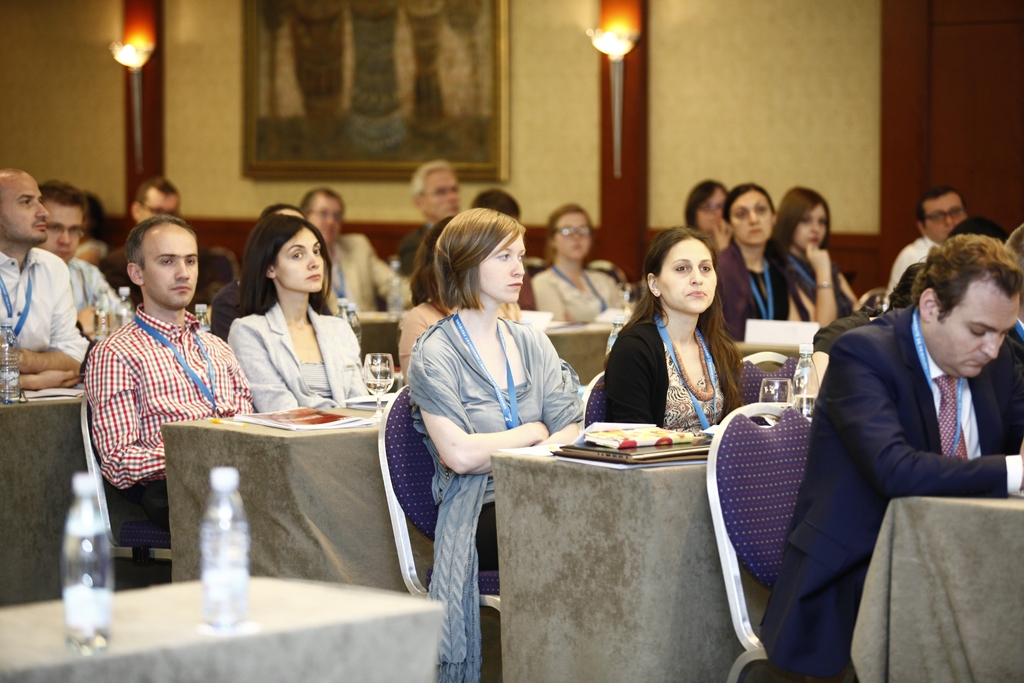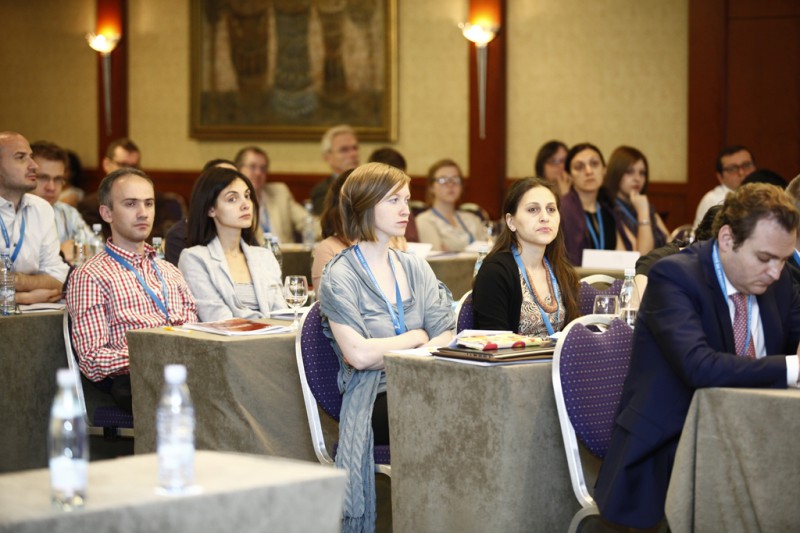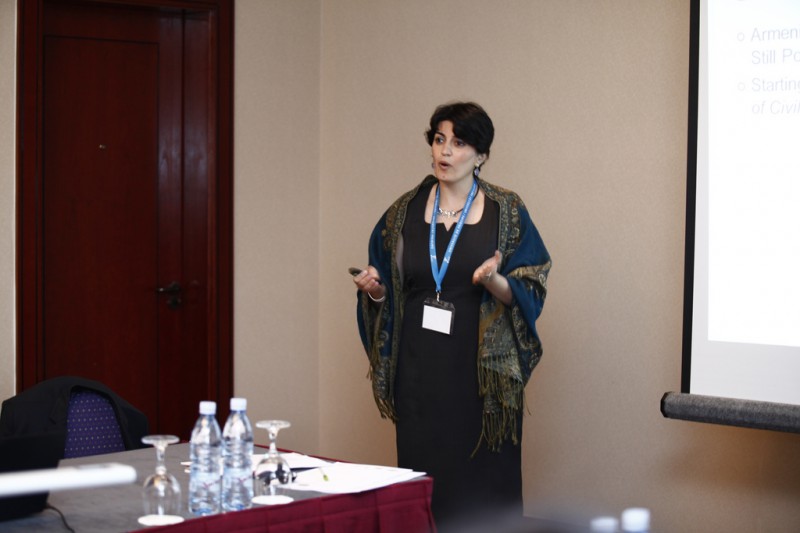
Presenting on the Non-Governmental Sector in Armenia
2 min readAUA’s Turpanjian Center for Policy Analysis’ Research Well-Received During Conferences in Tbilisi, Georgia
Yerevan – On June 20-21, 2013, a research team from the American University of Armenia (AUA)’s Turpanjian Center for Policy Analysis presented two research projects at the Research Methods Conference, organized by the Caucasus Research Resource Centers (CRRC), and the Third Academic Swiss Caucasus Net (ASCN) Annual Conference in Tbilisi, Georgia.
Research Assistant at the Turpanjian Center for Policy Analysis Valentina Gevorgyan presented team research (available online here) entitled Is “Googling” a Method? What Can the Internet Tell Us About the Non-Governmental Sector in Armenia? at the Research Methods Conference. This conference brought together local and international participants committed to exploring key methodological issues of social science research. It offered researchers the opportunity to discuss and compare their methods, thus advancing methodological innovation across the region.
Ms. Gevorgyan explains, “The paper discusses the method we used to gauge online visibility of Armenian NGOs. The work is part of a bigger project aimed at mapping the Armenian civil society sector today: its levels of activity and connectedness with the Armenian public. While formally there are some 3,500 NGOs registered in Armenia, there is little solid knowledge on how many of those are active in reality—this is a question our team hopes to answer with at least some level of credibility.”
The Third Academic Swiss Caucasus Net Annual Conference, entitled “Political Transformation and Social Change in the South Caucasus: Georgia, Armenia, and Azerbaijan in Perspective,” aims to foster the ASCN mission of promoting social sciences in the South Caucasus. Assistant Director of the Turpanjian Center for Policy Analysis Dr. Yevgenya Paturyan presented team research entitled Trust towards NGOs and Volunteering in Armenia: Moving away from Post-Communism? The researchers’ analyses of the available data concluded that although the Armenian public is generally distrustful of NGOs, the young, post-soviet generation differs in their attitudes towards civil society, which might signal a generational change and better prospects for future civic engagement in Armenia.
AUA’s Turpanjian Center for Policy Analysis is currently one of the six research teams in Armenia that receive funding from the Academic Swiss Caucasus Net, after winning a grant competition against some 40 other research teams from both Armenia and Georgia. The conference was the first public opportunity for the Turpanjian Center for Policy Analysis to present their first ten months’ research to donors and to regional and international peers.
Says Dr. Paturyan, “Both papers were very well received. Some of the comments were incredibly useful. It’s always a great feeling to be able to present your academic research to an audience that is critically minded, knowledgeable, and friendly at the same time.”
Founded in 1991, the American University of Armenia (AUA) is a private, independent university located in Yerevan, Armenia and affiliated with the University of California. AUA provides a global education in Armenia and the region, offering high-quality, graduate and undergraduate studies, encouraging civic engagement, and promoting public service and democratic values.
Link to first article: http://www.crrccenters.org/store/files/Papers/V.Gevorgyan_M.Matevosyan_Is%20%E2%80%9CGoogling%E2%80%9D%20a%20method.pdf)
Research Assistant at the Turpanjian Center for Policy Analysis Valentina Gevorgyan
Assistant Director of the Turpanjian Center for Policy Analysis Dr. Yevgenya Paturyan



Comments are closed, but trackbacks and pingbacks are open.